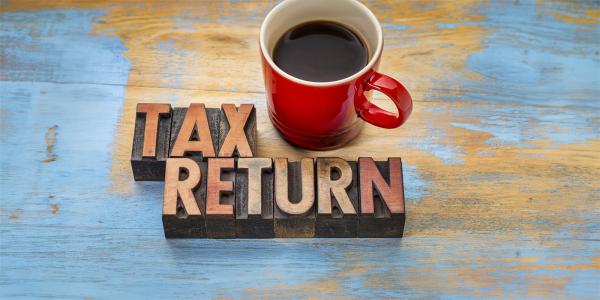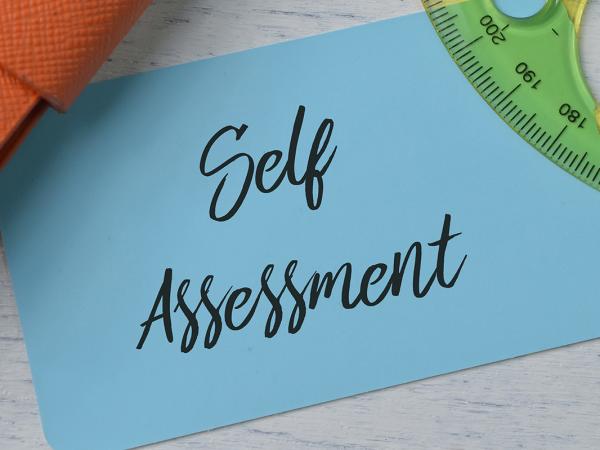Who has to complete a tax return
If you meet HMRC’s self assessment criteria for a particular tax year, you will need to file a tax return. It is also important to understand your legal obligations relating to self assessment to avoid penalties and interest.

Content on this page:
Legal requirements
There are two distinct legal requirements which may apply:
- In some cases, you may need to notify HMRC that you owe tax for a year.
- If HMRC ask you to file a tax return, then you must do so unless HMRC cancel the requirement.
If all of your income is taxed under pay as you earn (PAYE), you have no chargeable gains and you are not liable to certain tax charges (such as the high income child benefit charge) then you should not need to notify HMRC of any liability.
Otherwise, if HMRC have not already asked you to file a tax return for a year, you must usually notify HMRC if you owe tax (this can include income tax, capital gains tax, class 2 and 4 National Insurance contributions) for that year. This may apply to you, for example, if you started self-employment in a tax year.
When you notify HMRC that you owe tax for a year, they may ask you to complete a tax return for that year so you can report and pay that tax. This process is usually referred to as registering for self assessment.
HMRC’s self assessment criteria
HMRC have a set of criteria which sets out the taxpayers they wish to complete a self assessment tax return.
If you fall within HMRC’s criteria and HMRC have not asked you to file a tax return, then you should register for self assessment. If you do not, you may be charged a failure to notify penalty.
If you fall within the criteria but don’t owe any tax, see our information under the below heading If you have no tax to pay.
If you fall outside the criteria but HMRC have asked you to file a tax return for a year, you can ask HMRC to cancel the filing requirement. If HMRC don’t cancel the filing requirement you must complete and submit a tax return. If you don’t file a return on time, you may be charged a late filing penalty.
GOV.UK has a tool which asks you questions and, based on your answers, tells you if you fall within the criteria. You should keep a copy of your answers and the result the tool gives you.
Common situations falling within the criteria are:
- you are self-employed (unless this income, before expenses, is within the annual £1,000 trading allowance)
- you are a partner in a business
- you have property income exceeding certain limits. You can read more about the self assessment criteria for property income on our page Reporting property income
- you want to claim tax relief on employment expenses over £2,500 in a year
- you have capital gains tax to pay which hasn’t already been paid in-year
- you are a minister of religion – any faith or denomination
- you receive income from a trust or estate of a deceased person and further tax is due
- you receive foreign income (unless this is only dividend income and this, together with any UK dividend income, is less than the annual dividend allowance)
- you need to make a claim for relief under a double tax agreement, or a claim for the remittance basis (where it does not apply automatically)
- you are non-UK resident and you have taxable income in the UK
- you have income from UK savings and investments of £10,000 or more (excluding those held in an ISA)
- You have income from UK dividends of £10,000 or more (excluding those held in an ISA)
- you have any other untaxed income of £2,500 or more
- you have total taxable income of £150,000 or more before tax (up to 2022/23, this threshold was £100,000)
- you need to pay the high income child benefit charge
The above is not an exhaustive list. HMRC may also want you to complete a self assessment tax return for other reasons. For example, in some cases this will be as a way to collect unpaid tax.
Remember, if HMRC have asked you to file a tax return, you will be charged penalties if you do not submit one by the deadline – even if the tool suggests that you do not ‘need’ to file a tax return. In this situation, you can ask HMRC to cancel the filing requirement.
If HMRC agree to cancel the filing requirement the late filing penalties will be cancelled automatically. It is important to do this before filing the return, because after you have submitted a return, HMRC cannot cancel the late filing penalties in the same way and you must appeal against them instead.
Selling a property
If you are a UK resident, you sell a UK residential property and you have capital gains tax to pay on that disposal, you usually have to tell HMRC and pay the tax within 60 days. You must do this on a separate return, usually by setting up a ‘Capital Gains Tax on UK Property’ account. If you have to complete a self assessment tax return then you will need to include the property sale on this tax return too. You can read more about this in our Capital gains tax reporting section.
Similar rules apply to non-residents selling any UK land or property, even if there is no tax to pay.
If you have no tax to pay
In certain situations, you may fall within HMRC’s self assessment criteria but you have no tax (or other) liability to be settled via self assessment.
For example, you may have gross trading income of £5,000 (with no expenses) in 2023/24 and no other income or gains in a tax year. Although your trading income would exceed the trading allowance, there would be no tax or National Insurance due on this income because it does not exceed the relevant thresholds for tax and NIC. HMRC still expect you to complete a tax return in this situation. HMRC’s self assessment criteria does not provide any ‘exception’ for cases where no tax is payable – for instance where total income is less than your personal allowance. If you have already received a notice to file a tax return for that year, you must submit one.
There are a number of reasons why it is in your favour to complete a return even if you have no liability to pay, including:
- to pay class 2 National Insurance contributions
- to demonstrate your trading profits to HMRC so that you are treated as having paid class 2 National Insurance contributions
- to claim a capital loss or a trading loss
- to have evidence of your income or trading status, which may be required for finance applications, such as a mortgage, business loan or student finance assessment
- to give HMRC visibility over your tax affairs in case you have made an error (for example, if you are self-employed and have deducted expenses from your income which HMRC later say are not tax allowable expenses)
If HMRC have not asked you to file a tax return for the year
If you have not been asked to file a tax return for the year but fall within HMRC’s self assessment criteria, HMRC’s guidance says that you should still register for self assessment and submit a tax return for the relevant tax year – even if you believe you have no tax or National Insurance to pay. If you are late in registering for self assessment but have no liability, you might not suffer a ‘failure to notify’ penalty, as this is calculated as a percentage of the amount owed.



